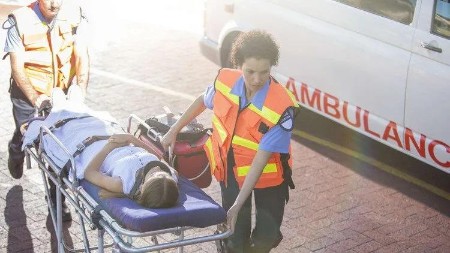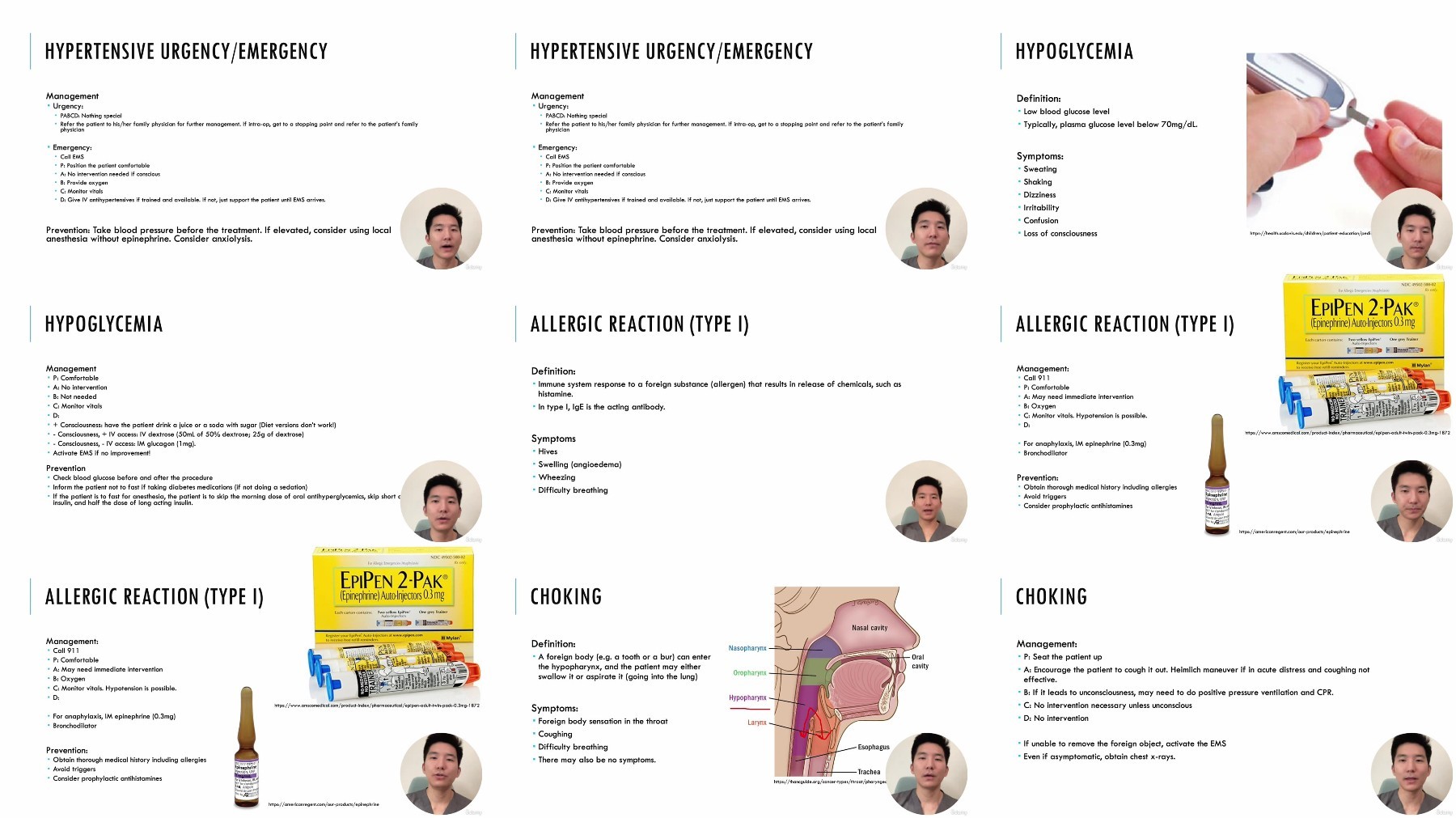Medical Emergencies In a Dental Office

Medical Emergencies In a Dental Office
Published 10/2024
Duration: 39m | .MP4 1280x720, 30 fps(r) | AAC, 44100 Hz, 2ch | 514 MB
Genre: eLearning | Language: English
Handling medical emergencies in an office
What you'll learn
Recognize and Identify common medical emergencies
Implement immediate emergency responses
Utilize emergency equipment and medications effectively
Develop and execute an emergency action plan
Requirements
Only basic medical knowledge needed
Description
Welcome to "Medical Emergencies in a Dental Office," an essential course designed for dental and medical professionals who seek to enhance their preparedness and confidence in managing medical emergencies. In this course, you'll gain the critical knowledge and practical skills needed to recognize, respond to, and manage a variety of medical emergencies that may arise in a dental setting.
Medical emergencies in offices are rare but potentially life-threatening. This course covers a wide range of emergencies, including syncope, hypoglycemia, allergic reactions, cardiac arrest, seizures, and choking. You will learn to identify the signs and symptoms of each emergency and understand the immediate actions required to stabilize the patient until professional medical help arrives.
Our curriculum includes instructions on using essential emergency equipment and medications, such as Automated External Defibrillators (AEDs), oxygen tanks, EpiPens, and blood glucose monitors.
In addition to emergency response techniques, this course emphasizes the importance of creating and implementing an effective emergency action plan. You'll discover how to train your staff through regular drills, and establish efficient communication protocols to ensure a coordinated response during emergencies.
By the end of this course, you'll be better equipped with the knowledge and skills to handle medical emergencies with confidence and competence, ensuring the safety and well-being of your patients.
Enroll now and take the first step towards becoming a more prepared and capable dental professional!
Who this course is for:
Dentists and physicians that have an outpatient office
More Info

What you'll learn
Recognize and Identify common medical emergencies
Implement immediate emergency responses
Utilize emergency equipment and medications effectively
Develop and execute an emergency action plan
Requirements
Only basic medical knowledge needed
Description
Welcome to "Medical Emergencies in a Dental Office," an essential course designed for dental and medical professionals who seek to enhance their preparedness and confidence in managing medical emergencies. In this course, you'll gain the critical knowledge and practical skills needed to recognize, respond to, and manage a variety of medical emergencies that may arise in a dental setting.
Medical emergencies in offices are rare but potentially life-threatening. This course covers a wide range of emergencies, including syncope, hypoglycemia, allergic reactions, cardiac arrest, seizures, and choking. You will learn to identify the signs and symptoms of each emergency and understand the immediate actions required to stabilize the patient until professional medical help arrives.
Our curriculum includes instructions on using essential emergency equipment and medications, such as Automated External Defibrillators (AEDs), oxygen tanks, EpiPens, and blood glucose monitors.
In addition to emergency response techniques, this course emphasizes the importance of creating and implementing an effective emergency action plan. You'll discover how to train your staff through regular drills, and establish efficient communication protocols to ensure a coordinated response during emergencies.
By the end of this course, you'll be better equipped with the knowledge and skills to handle medical emergencies with confidence and competence, ensuring the safety and well-being of your patients.
Enroll now and take the first step towards becoming a more prepared and capable dental professional!
Who this course is for:
Dentists and physicians that have an outpatient office
More Info

